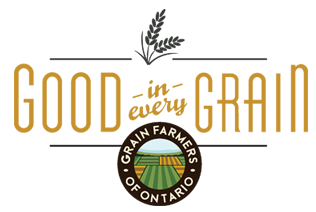Is agriculture a STEM field? It’s closer than you think.
Last Wednesday was the First International Day of Women and Girls in Science, so we spent some time talking to women in agriculture who understand the importance of, and often have extensive formal training in the four STEM areas: science, technology, engineering, and math. This list isn’t meant to be comprehensive — think of it as a reminder of all the things that go into a successful farm. There are women working in agriculture across the Province doing hard science, designing farm technology, and performing complex calculations every day.
Science
Farmers can be veterinarians, agronomists, soils scientists… the list goes on. Many farmers now have a diploma or a degree in science. Even those who don’t are always taking courses to better their knowledge on the farm and in the field. Farmers are also constantly experimenting on farm, trying to learn what seed, fertilizer, and chemicals work the best on their land. Farmers only have a limited number of chances to get things right in their field. It is in their best interest to use scientific data to guide their crop decisions.
Technology & Engineering
The agricultural technology industry is massive. From high tech tractors, to precision planting equipment, to drones and GPS-enabled everything, modern farmers demand constant innovation from the people who design their equipment. When a tractor costs half a million dollars, you expect a lot out of it. By necessity, all farmers are engineers. Repairing and re-purposing old equipment and optimizing new equipment to make their operations as financially and environmentally sustainable as possible is their #1 priority.
Math
Farmers and crop advisers do math, sometimes complex math, in order to decide on fertilizer rates, seeding rates, chemical rates, and balancing the farm’s inputs and outputs. Farmers also have to be market-savvy when it comes to selling their grains, and most are heavily invested in commodities markets to offset the risks of unpredictable seasons. Good accounting practices are also as important to a farm business as they are to any other small or large company. That’s why we say you need a very sharp pencil if you want to be a successful farmer.
